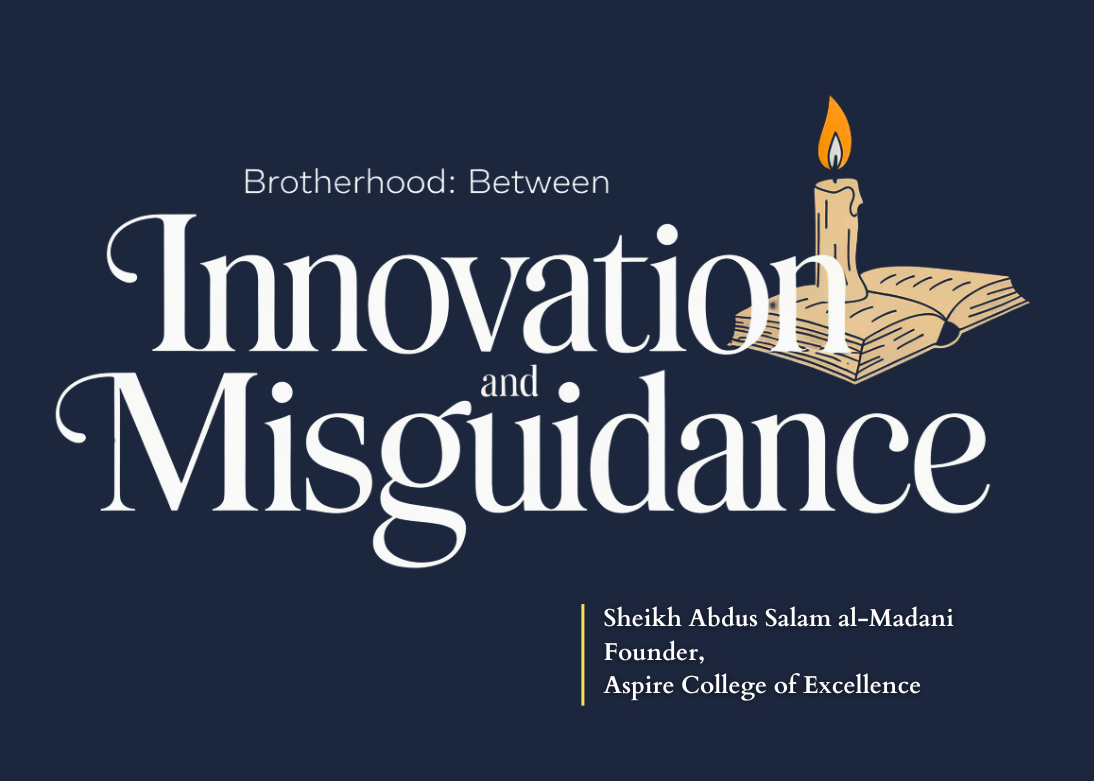
Brotherhood: Between Innovation and Misguidance
"Followers of the Qur'an and Sunnah", "Ahl us-Sunnah wal Jama'at", "the Salaf", "Ahl ul-Hadith" etc are the terms that keep reminding the Ummah that Islam, complete Islam as it was preached by the Messenger of Allah(pbuh), remains and will remain in its pristine purity. Only the Prophets are innocent. All others have deficiencies. The reasons for this deficiency may vary.
Minor and major mistakes, misunderstandings, stumbling blocks of thought and understanding, world of speculations and wide range of interpretations, inaccurate conclusions due to ijtihad, flaws in determining the right meanings, disagreement between reality and metaphor, etc. are innate characteristics of human beings.
The diversity of human mood and taste, the different colors of thought and vision, the height and depth of intellect and understanding, the open differences in modes of understanding and the vast world of impressions and feelings. Based on these undeniable facts, some have attained the grades of Siddeeq, some others of Farooq, some of Shaheed, while some are in the ranks of Sahabi, some of Tabi'i, or Muhaddith, or Mufassir, or Faqeeh, or Mujaddid, and so on.
Meanwhile the fact remains that 'there's always someone more knowledgeable in every field of knowledge'.
The various religious interpretations, giving birth to new thoughts thus becoming part of new ideologies and beliefs. Then every ideology and belief finds its followers and promoters. Thus, the same religion and the same religious community further splits into different beliefs and ideologies, gradually diluting to diversity, extremism and prejudice. And this prejudice and discrimination can spiral into sectarianism and bigotry, leading to disunity in the Ummah. And this is the alarming stage when Islamic brotherhood and fellowship is sacrificed in the name of 'religion'. Leading to name calling, mistrust, labelling, and religious witch hunts which eventually destroys the unity and cohesiveness of the Ummah.
When the family flourishes, generations grow, differences arise in the family; and the elders and serious members of the family are concerned about keeping the ties together, classifying the disagreements and assigning punishments according to the seriousness of the mistakes.
This was the attitude of followers of the Salaf towards the entire Ummah in the past. They wanted their opponents to also understand the truth as they had understood it, by the Grace of Allah, considering them their brothers. Hence, they maintained ties with the deviants and kept attempting to bring them back with kindness, gentle preaching and presenting evidences with wisdom. Their refutations and responses are clear evidences for this. But calling a well-intentioned but misguided fellow brother as a disbeliever is something that they never indulged in. That is why Ibn Taymiyyah, may Allah have mercy on him, wrote many times that "I would become a disbeliever if I agree with your argument, but I cannot call you a disbeliever because you are doing it without understanding."
Reply to al-Bakri: p. 253 (And this is why I used to say to the people of al-Haluliya: those who believe in incarnation and deny that Allah Ta'ala is above the throne - at the time of trials - "If I had accepted you, I would have accepted your disbelief. For their scholars, their judges, their sheikhs, and their princes can't be declared as disbelievers since they are unaware of the Truth.)
This is the requirement of real Islam and real Salafism. Actual Salafism is the most cautious in the declaration of takfir for innovation and wrongdoings. Even the ones who call them as infidels, they considered them as their overzealous brothers in faith, and advise them to tone down their level of religious censure.
The scholars of Salaf inspite of and maybe due to, being the most knowledgeable of the truth, are the most merciful towards their fellow-beings. This is their well recognised characteristic.
The Khawarij, who declared Ali (ra) and his Companions to be infidels and were thirsty for their blood, when he was asked about them, he replied 'من الكفر فروا', meaning, they have fled from disbelief. Then he said, "They are our brothers, but when they raised arms against us, we also fought." (Al-Siyas al-Shariyya, Ibn Taymiyyah)
How many conditions and impediments have the Salaf mentioned for declaring takfir like forgetfulness, ignorance, misunderstanding, doubts and mistakes? They refrain from imposing fatwas of disbelief and innovation. They distinguish between the one who invites to bid'ah and the one who is invited, scholar and a layman. Even if the same act is committed by two persons, they gave different rulings on each due to dissimilar circumstances. That's why they reject every small and big mistake and innovation, but maintain brotherhood with the one who made the mistake, because he was sincere for Islam and his mistake was due to his fragile understanding, and not based on anti-Islamic beliefs or practice. They appreciated their service to Islam in various fields of knowledge and supported it, while clarifying and warning against their shortcomings.
Human errors are either related to belief or related to action. Errors related to belief are either the cause of disbelief or lesser than disbelief, which is known as bid'ah gair mukaffirah (innovation which doesn't make a person into a disbeliever). The Scholars agree that the seventy-three sects refer to those who are still in the circle of Islam and they are not out of Islam. And as long as they are not out of Islam, it is obligatory to maintain relationship of brotherhood with them, and those who cite religion to ostracize them, are not true followers of the Salaf, but the quality of (Kharijiyat) extremism could be sensed in them.
As for the statement in the Hadith "all of them will be in the Fire", in the famous Hadith, it serves as a warning and for the fulfillment of given warning, fulfilling the conditions and lacking the impediments is compulsory. For instance, Allah has warned those who consumes the wealth of orphans of eating fire and entering in the HellFire, (chapter 4:10) but the Scholars know that this is a plain warning, not for Takfir. In the same way, in the Hadith 'all are in fire' 'kulluhum finnaar' is for warning not for takfir.
Sheikh Abdus Salam al-Madani
Founder,
Aspire College of Excellence (Chennai and Bangalore)
Comments (0)
Categories
Recent posts
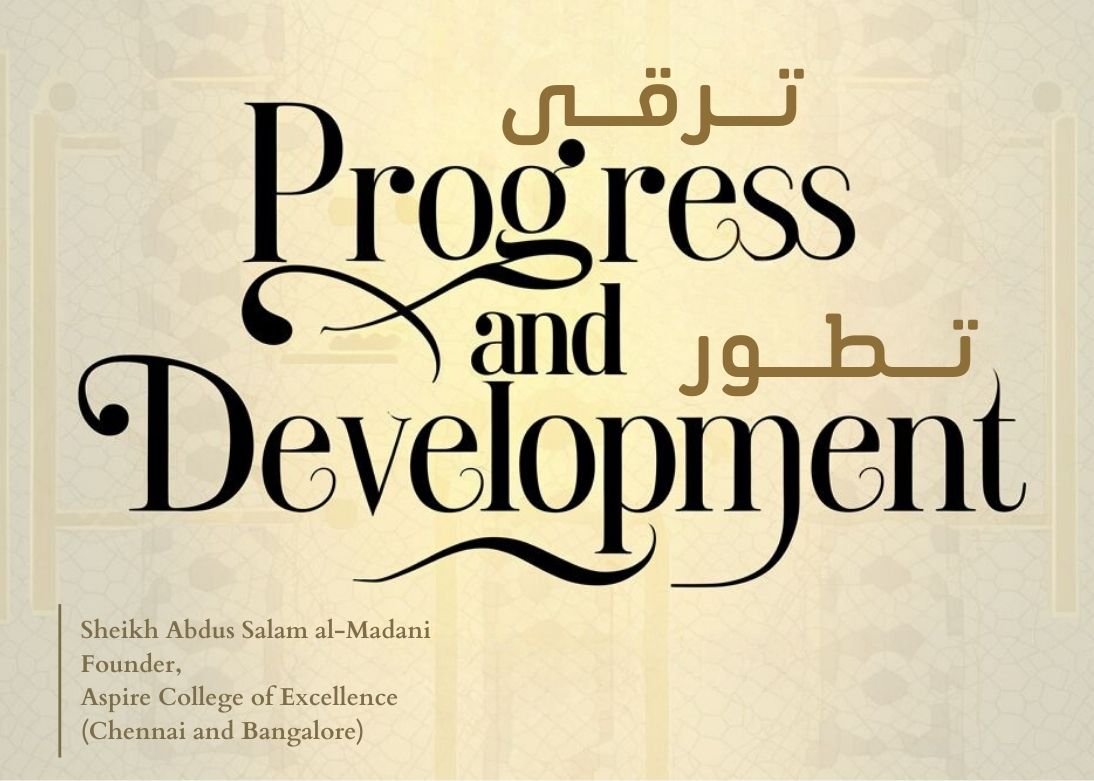
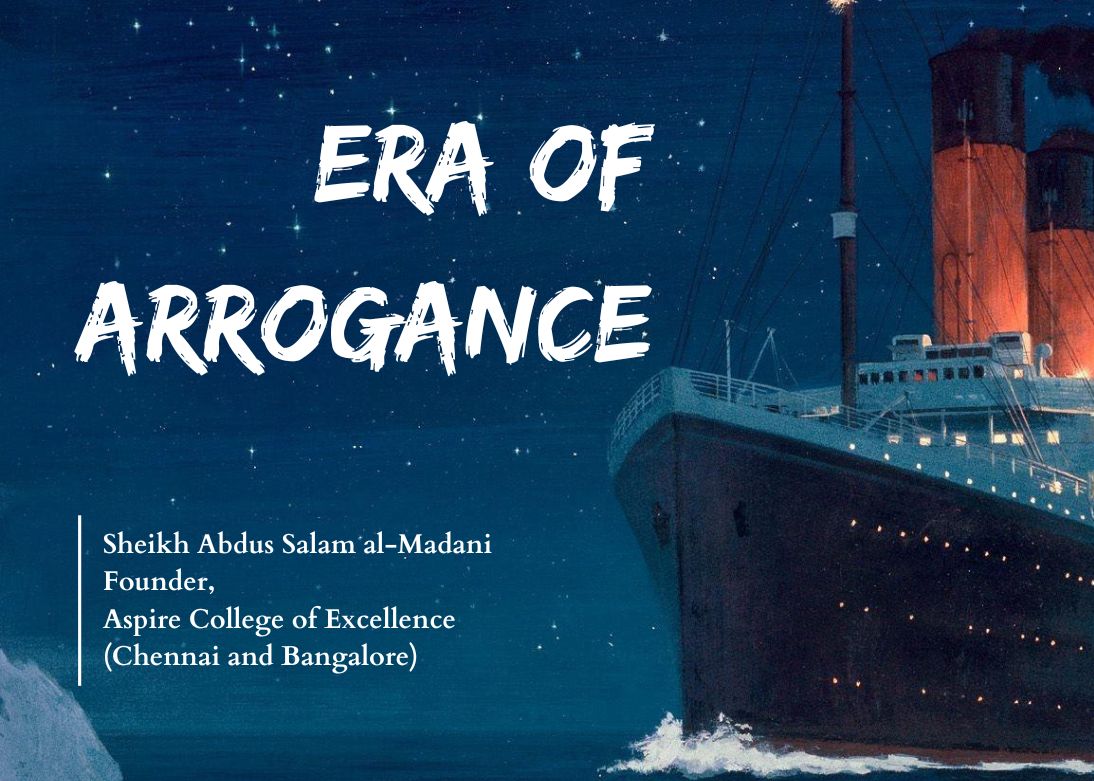
Era of Arrogance
6 Feb 2024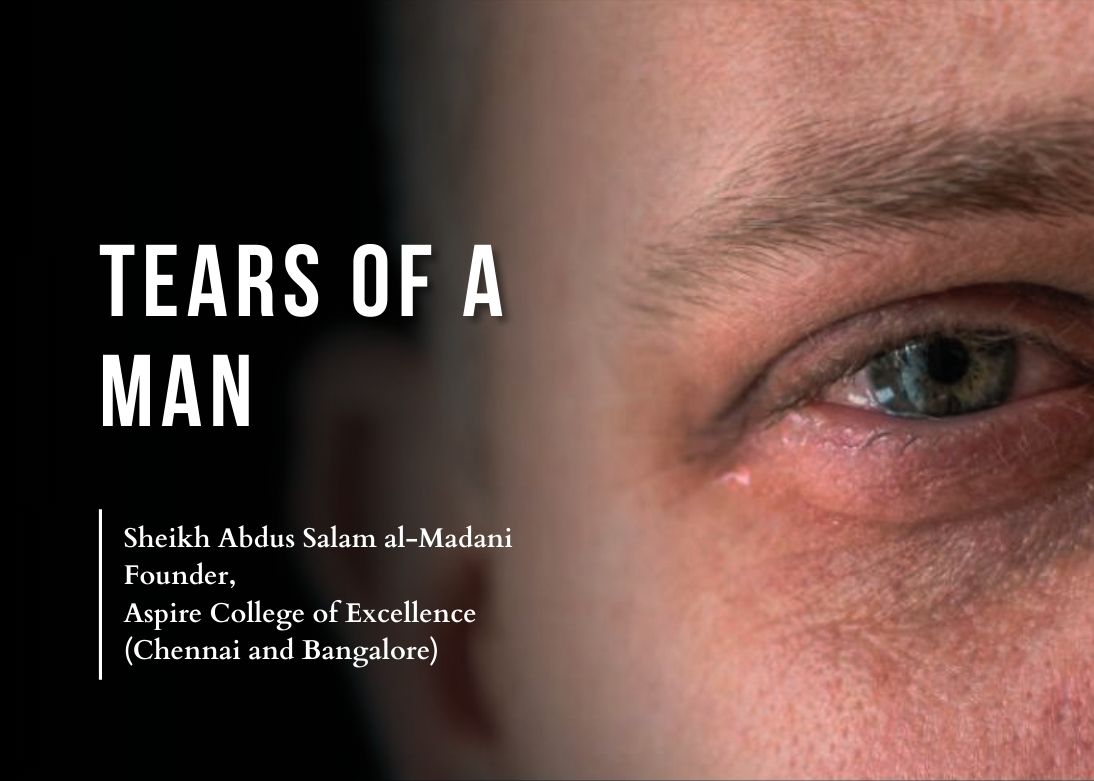
Tears of a Man
13 Feb 2024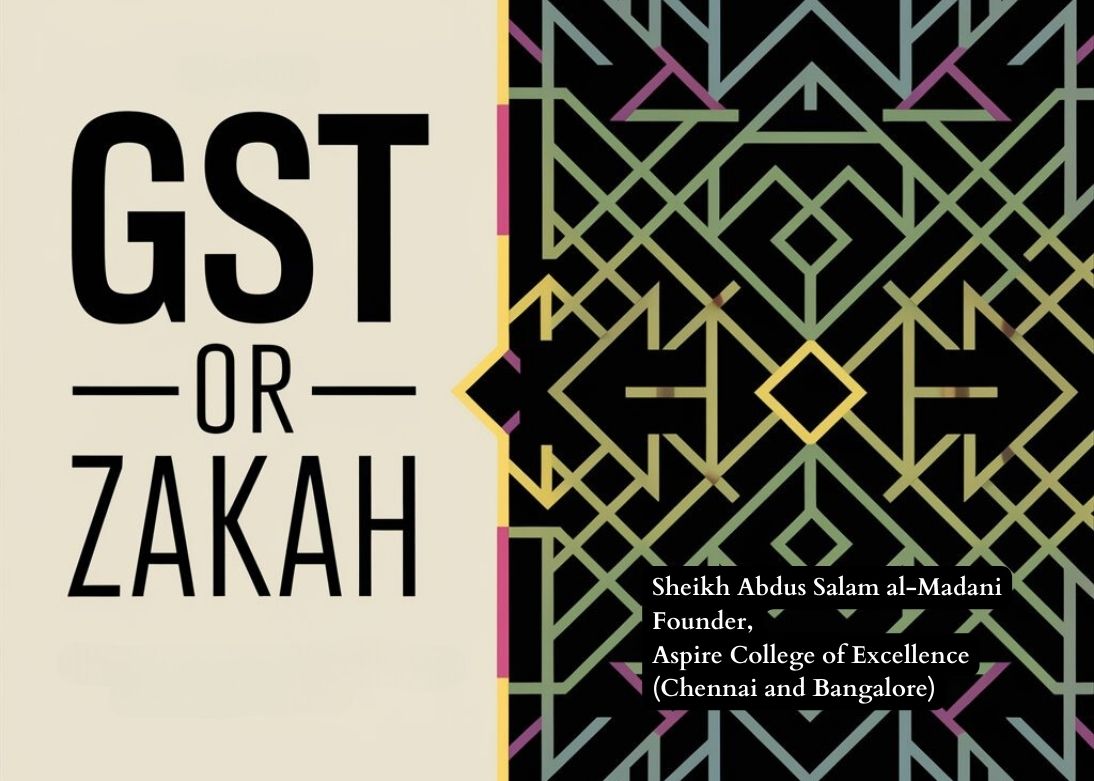
GST or Zakah
9 Apr 2024




